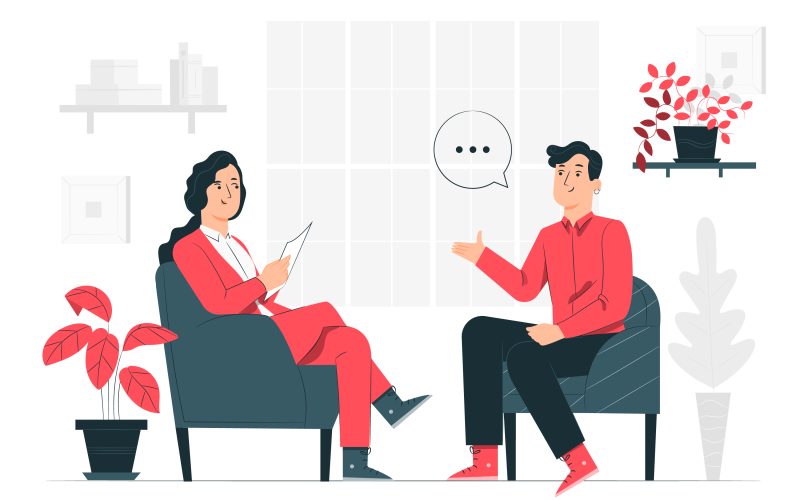Introduction
Relationships are a journey of connection, understanding, and compromise. However, even the strongest relationships can face moments of misunderstanding, conflict, or emotional distance. In such cases, couples often feel stuck, struggling to communicate effectively or understand each other’s perspectives. This is where counselling for relationships comes into play. By fostering empathy and improving communication, couples can strengthen their bond and navigate challenges more effectively.
Rise of Couples Counselling
In recent years, couples counselling has gained significant traction as more people recognize its importance in maintaining healthy relationships. This rise is largely due to changing attitudes towards mental health, where seeking help is no longer seen as a sign of weakness but as a proactive step towards self-improvement. With busy lives and increasing pressures—whether from work, family, or other external factors—couples often face challenges that require outside support to resolve. As a result, there’s been a growing willingness to turn to trained professionals who can help guide partners through their difficulties. The increasing availability of online therapy platforms has also made counselling more accessible, allowing people to get help without having to leave the comfort of their homes.
Understanding Empathy in Relationships
The capacity to comprehend and experience another person’s emotions is known as empathy. In a relationship, empathy allows partners to respond to each other’s emotions with compassion rather than judgment. Lack of empathy often leads to misunderstandings, resentment, and emotional disconnection. For instance, when one partner expresses stress or frustration, an empathetic response involves acknowledging their feelings rather than dismissing or invalidating them.
Couples who struggle with empathy may notice recurring conflicts, miscommunication, or a sense of emotional distance. Developing empathy is not always intuitive, especially for couples who have grown apart or have unresolved emotional baggage. This is where professional guidance through marriage counselling or counselling for relationships can make a significant difference.
Benefits of Couples Counselling
Couples counselling offers numerous advantages that can greatly enhance the quality of a relationship. For one, it provides a structured space for both partners to openly express their feelings and concerns. Often, couples find that they struggle to communicate effectively on their own, and therapy provides a neutral third party to guide the conversation. This improved communication is key to resolving conflicts and reducing misunderstandings. In addition, couples therapy helps partners to understand each other’s emotional needs and perspectives, which fosters deeper empathy. The ability to resolve conflicts in a healthy manner can lead to greater trust and intimacy, ultimately making the relationship stronger. Couples counselling also teaches valuable coping mechanisms, which can help partners manage stress and work through challenges together, creating a supportive environment for growth and connection.
The Role of Empathy in Relationships
Before diving into how counselling can help build empathy, it’s important to understand why empathy is essential in relationships. Empathy is the ability to put yourself in your partner’s shoes, to truly understand their thoughts, feelings, and emotions, without judgment. In a relationship, empathy serves several crucial functions:
- Improved Communication: When couples understand each other’s emotions, they communicate more clearly and effectively.
- Stronger Emotional Bonds: Empathy helps partners connect emotionally, creating a deeper and more meaningful relationship.
- Conflict Resolution: When both partners can empathize with each other’s viewpoints, resolving disagreements becomes easier and more constructive.
- Increased Trust and Respect: When empathy is present, couples are more likely to trust and respect each other, knowing that they are understood and valued.
Without empathy, relationships can feel disconnected, with partners growing frustrated, resentful, or indifferent to each other’s feelings. This is where relationship counselling comes in to help rebuild these crucial emotional bonds.
How Counselling for Relationships Cultivates Empathy
Professional relationship counsellors provide a structured and supportive environment where couples can explore their feelings and behaviours safely. Here’s how counselling for relationships helps enhance empathy between partners:
- Active Listening Skills: Counsellors teach couples the importance of active listening—fully focusing on the partner’s words, emotions, and body language. Instead of preparing a rebuttal or response while the other speaks, partners learn to truly hear each other. This practice not only reduces conflict but also allows each partner to feel validated and understood.
- Emotional Awareness: Through guided sessions, couples gain awareness of their own emotions and how these emotions influence their reactions. Counselling encourages individuals to recognise triggers and understand the underlying feelings behind their partner’s behaviour. Emotional awareness is key to responding empathetically rather than reactively.
- Perspective-Taking Exercises: Counsellors often use role-playing or perspective-taking exercises. These techniques help partners step into each other’s shoes, literally and figuratively. Experiencing situations from the other’s perspective can shift perceptions, leading to more compassionate responses.
- Conflict Resolution Strategies: Many relationship conflicts stem from misunderstandings or poor communication. Counselling equips couples with tools to navigate disagreements constructively, promoting understanding instead of blame. When conflicts are managed empathetically, couples learn to strengthen their connection even during challenging times.
- Building Emotional Intimacy: Empathy fosters emotional intimacy. Couples who understand each other’s needs, fears, and desires feel closer and more connected. Counselling sessions often include exercises that deepen emotional sharing, such as expressing appreciation, vulnerability, and understanding.
Marriage Counselling and Long-Term Benefits
Marriage counselling is a specialised form of relationship counselling that addresses deeper and long-standing issues in committed partnerships. While the focus is on resolving conflicts and improving communication, empathy-building remains a core outcome. Marriage counselling clients frequently report:
- Improved communication and fewer misunderstandings
- Greater emotional support and validation
- Stronger problem-solving skills as a team
- Enhanced trust and intimacy
- Long-term satisfaction and stability in the relationship
By learning to respond empathetically, couples create a positive feedback loop where understanding nurtures connection, which in turn encourages more empathy.
TalktoAngel: Making Counselling Accessible Online
In today’s fast-paced world, accessing professional counselling can be challenging due to time constraints or geographical limitations. Platforms like TalktoAngel provide an accessible solution through online counselling for relationships. TalktoAngel connects individuals and couples with experienced psychologists and counsellors, offering confidential and flexible sessions from the comfort of home.
The benefits of using TalktoAngel for relationship counselling include:
- Convenience: Online sessions fit into busy schedules, eliminating the need for travel.
- Confidentiality: Couples can openly discuss sensitive issues in a secure environment.
- Expert Guidance: Professional counsellors guide partners through empathy-building exercises, active listening techniques, and conflict resolution strategies.
- Tailored Support: Sessions are personalised based on the couple’s unique challenges, fostering meaningful progress.
TalktoAngel’s approach ensures that couples not only address immediate conflicts but also develop long-term skills to strengthen their relationship, particularly empathy, emotional understanding, and connection.
The Long-Term Benefits of Empathy in Relationships
Building empathy through counselling is not a one-time fix—it’s a process that requires ongoing effort from both partners. However, the long-term benefits of fostering empathy in a relationship are profound and can lead to a more fulfilling and harmonious partnership. Some of these benefits include:
- Stronger Emotional Bonds: Couples who are empathetic toward each other experience a deeper emotional connection, which makes the relationship more resilient over time.
- Better Conflict Resolution: When both partners can empathize with each other, disagreements are more likely to be resolved in a respectful and constructive way, rather than escalating into arguments or resentment.
- Improved Intimacy: Emotional intimacy is strengthened when partners can express their feelings freely and understand each other’s emotional needs.
- Increased Relationship Satisfaction: Empathy is linked to greater satisfaction in relationships, as both partners feel valued, understood, and supported.
Challenges in Couples Counselling
While couples counselling offers significant benefits, it is not without its challenges. One of the biggest hurdles is ensuring that both partners are equally committed to the process. If one partner is not fully invested in therapy, it can lead to an imbalance, where only one person is trying to change or improve the relationship. Another challenge is that counselling can bring up difficult emotions and unresolved issues, which may cause discomfort or temporary setbacks. Some couples may struggle to open up about sensitive topics, especially if trust has been broken or if one partner is particularly guarded. Additionally, old patterns of behavior or communication may take time to change, requiring a lot of effort and patience. Finally, there are instances where couples may realize that despite their best efforts, the relationship may no longer be working. This realization can be painful, but counselling can help provide clarity and guide the couple toward a resolution, whether it’s through improving the relationship or deciding to part ways amicably.
Conclusion
Empathy is the cornerstone of a healthy and lasting relationship. It allows partners to truly understand each other’s emotions, perspectives, and needs, creating a foundation of trust and emotional safety. While some individuals may naturally possess higher levels of empathy, many couples find that sustaining empathy in day-to-day life requires conscious effort and practice. Misunderstandings, stress, and unresolved conflicts can gradually erode emotional connection, making it difficult for partners to respond to each other with genuine understanding.
Counselling for relationships, including marriage counselling, offers a structured and practical pathway to cultivate empathy, improve communication, and rebuild emotional intimacy. Through guided sessions, couples can learn to recognise and validate each other’s feelings, express their own needs without blame, and develop strategies for resolving conflicts in a healthy, constructive manner. Counsellors help partners navigate the complexities of their emotions, providing tools and exercises that strengthen mutual understanding and support.
Online platforms like TalktoAngel have made this journey more accessible than ever. They provide couples with convenient, professional guidance that fits into busy schedules, offering personalised counselling tailored to each relationship’s unique challenges. With the support of experienced counsellors, couples can develop a deeper emotional connection, foster compassion, and learn to respond thoughtfully rather than react impulsively during disagreements.












